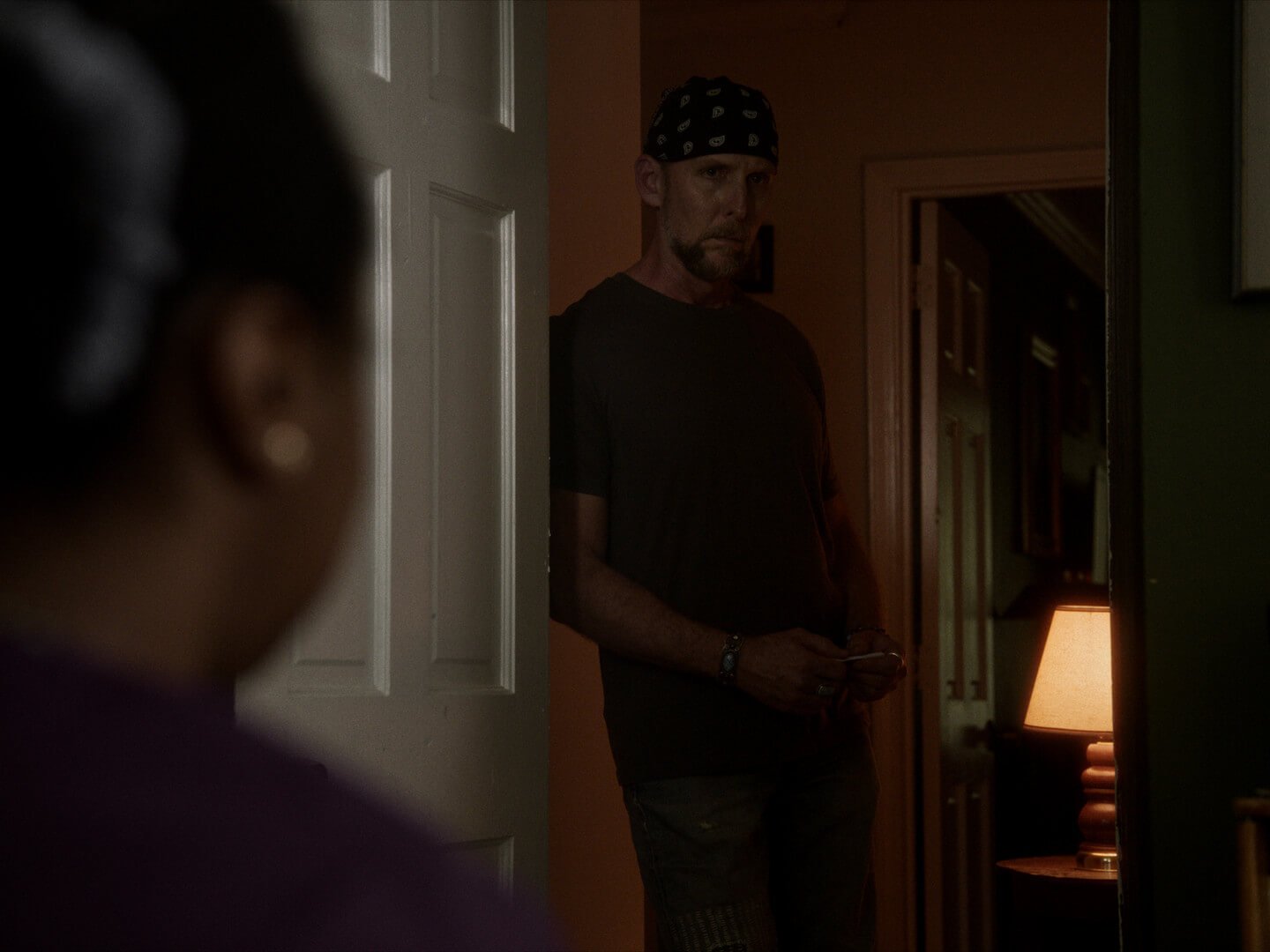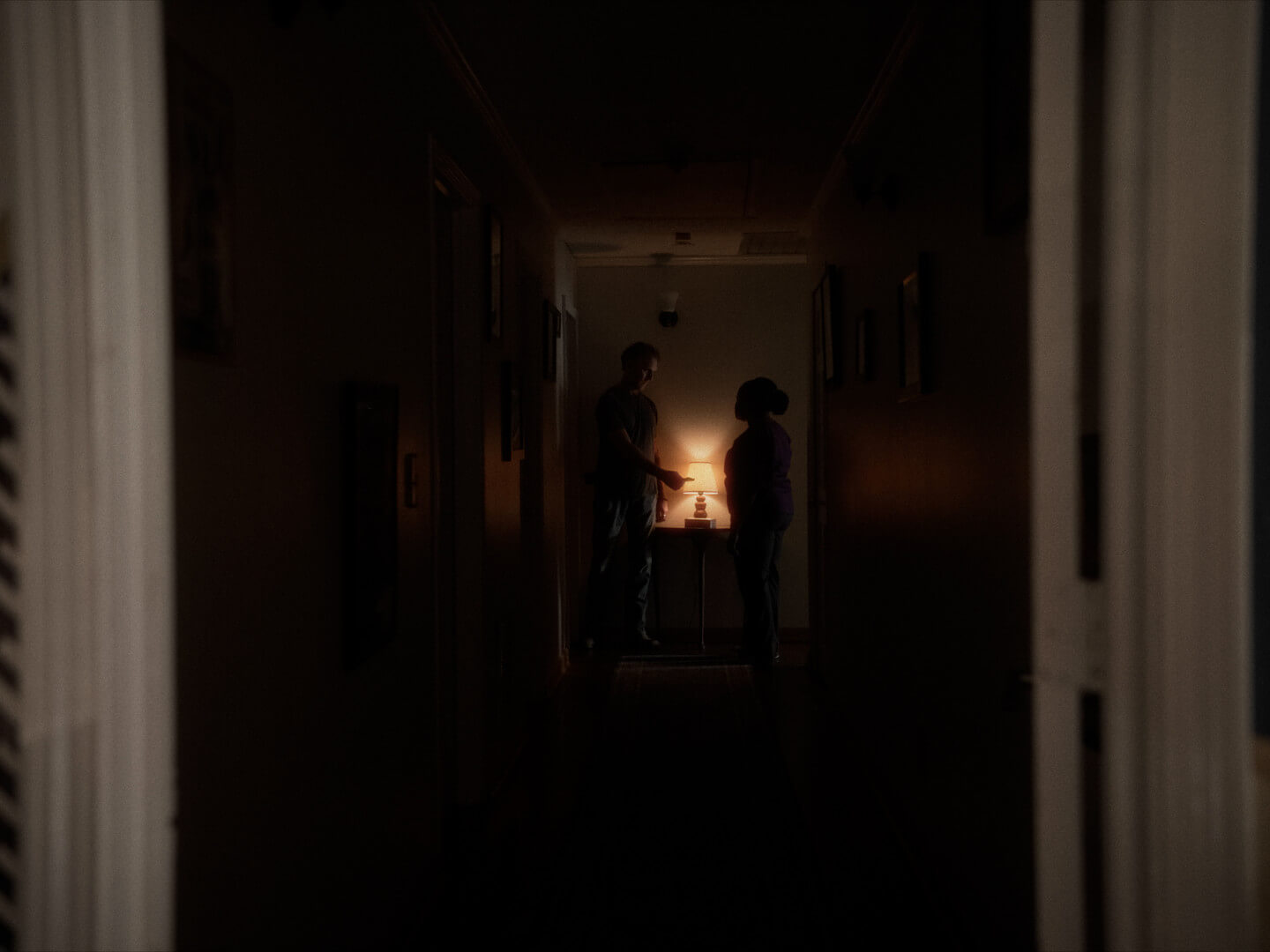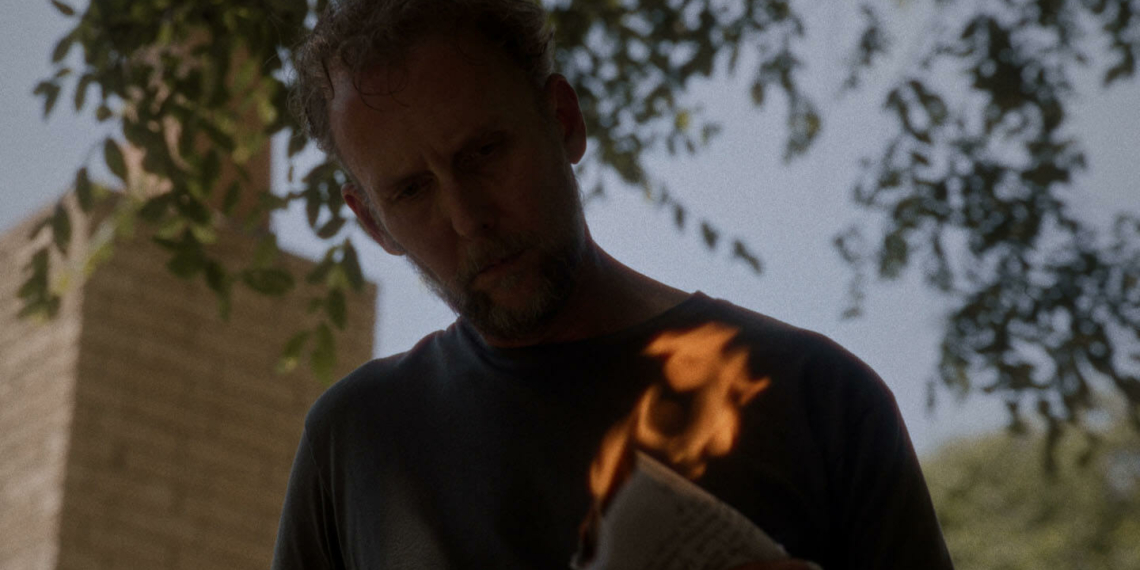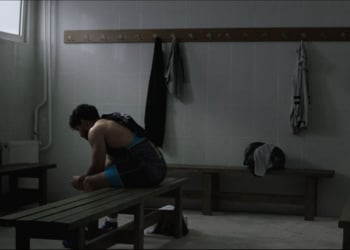Directed by Shaun MacLean, Chipper , at 20:54-minutes is a poignant film raising questions on choices, lack thereof and everything in between. When Reese (Jayson Warner Smith), the family’s wayward son returns, the stillness of the afternoon is only broken by the gentle breeze and a stray cat. His motorcycle, his sole companion, offers little warmth and it doesn’t take long to understand the reason for his aloofness. Smith embodies the air of a detached person, who is struggling to make sense of the reason he has been recalled home. A lot is left unspoken, and Smith carefully layers his performance between restraint and gentle assuredness.
Writers Ruckus Skye & Lane Skye bring with Chipper a nuanced understanding of life, death, mortality and the questions that remain lingering in the minds of anyone who has loved someone, at least once in their lifetime. And, without making it seem melodramatic or jarring to the senses, the dialogues are written to evoke a sense of sentimental longing that is unmistakably very familial.

MacLean, interestingly, uses a lot of pauses and suspended silences that only heighten the sense of loss that one feels the moment Reese decides to step in. There is a stillness to the house, as if it’s already mourning the loss, unable to bear the silence and secrecy anymore. The production design needs to be particularly lauded for their eye for detail and effort put in to turn the surroundings into a character that linger between the living, the dead and the lost.
Adesewa (Brittany Deneen), the caretaker, is brilliant from the start. Right from the polite smile to the gentle but firm replies she gives, Deneen is simply riveting in her performance. She adds a refined veneer to Adesewa, a character that could have very easily been stereotyped as the glossy, immaculately trained nurses and caretakers we often see in films. But, instead, Deneen makes her wholesome; a living, breathing entity, whose job doesn’t limit her integrity and choices. Watch out for the very last scene before she exits the screen, her halting walk conveys a lot more than bargained for.

The use of music (Braden Deal) is spot on. It’s heavy with grief and yet soft, effectively used to break between the scenes. It’s fascinating, the choice, because besides Reese and Adesewa, the other two important characters are Dad (Rick Andosca) and Carol (Kathrine Barnes) who are either seen or heard, but never both. The bedridden father has perhaps very little to perform with and yet, is moving. Limited to his bed and suspended with tubes, his only form of communication is the squeeze of his hand held and as the father and son connect, each touch, each lingering moment speaks volumes of the lost time, love and resentment. Interestingly, Carol is never seen and it’s her voice that lets us into the past. The sibling animosity is palpable even though the arguments are over calls and never in person, but we feel her weighted presence in Smith’s reactions, in the visible wincing and muted anger.
Without giving away the closely guarded secret or the choices made, Chipper can very easily be recommended for more than one viewing. It offers a wholesome, redemptive arc to all its characters without stifling one over. The film brings to light significant questions we daren’t ask ourselves, much less others. It touches upon familial bonds, bitterness and salvation without offering answers, but by simply marking the choices one family makes to find means to stay together one last time…
Watch Chipper Short Film
Chipper: A Soulful Journey Into A Family’s Dark Secret Offering Redemption & More
-
Direction
-
Cinematography
-
Screenplay
-
Editing
-
Music















